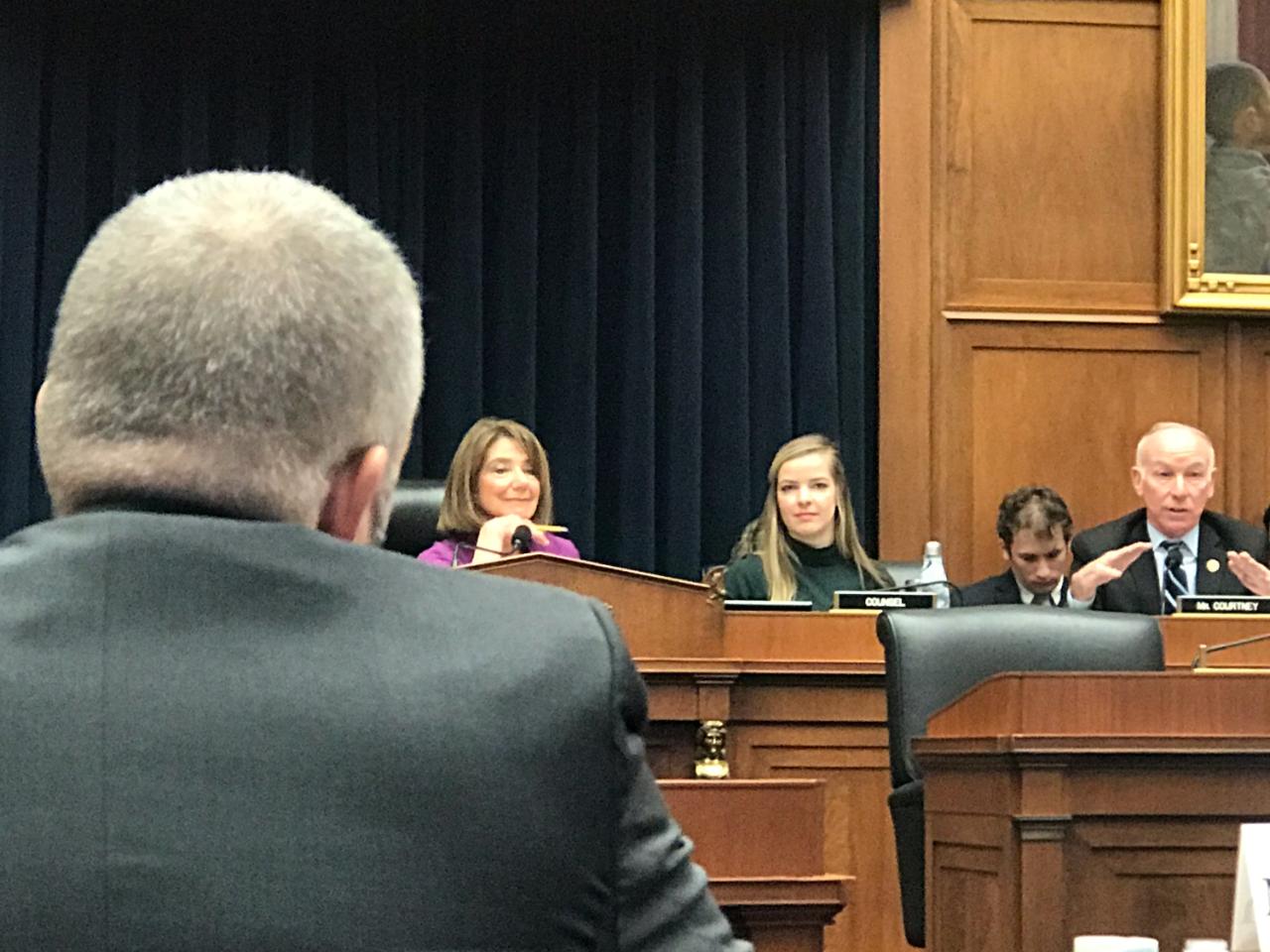March 6, 2020
At a Glance
Bipartisanship support of modernizing Registered Apprenticeship is welcome, and needed to ensure program’s potential.
At a time when partisanship is the norm on Capitol Hill, the March 4 hearing to discuss reauthorizing the National Apprenticeship Act of 1937 was a rare moment of bipartisan agreement. Despite much talk in recent years of alternative models, members from both sides of the aisle praised the current Registered Apprenticeship system and sought suggestions from a panel of experts to strengthen it even more.
Over the past 83 years, the U.S. apprenticeship system has been a powerful tool in moving people into middle-class careers. Recognizing apprenticeship as an opportunity to build economic mobility, the Obama administration, since 2014, and the Trump administration, since 2017, have made substantial investments in the apprenticeship system. Congress has approved annual funding for apprenticeship programs over the past four years with bipartisan agreements.
I hope, that as we continue these efforts, we put our differences aside to reach our common goal of helping more people succeed in today’s economy through the Registered Apprenticeship system.
Rep. Susan Davis (D-Calif.)
But today’s apprenticeship looks quite different than it did in 1937. More workers and businesses are engaged and high school and postsecondary institutions are more involved than ever. And apprenticeship is now a more widely accepted training strategy in a range of new occupations and industries, including IT and health care.
The public hearing held by the House Higher Education and Workforce Investment Subcommittee, Reauthorizing the National Apprenticeship Act: Strengthening and Growing Apprenticeships for the 21st Century, was to review a newly released discussion draft to reauthorize the National Apprenticeship Act. The hearing was led by Subcommittee Chair Susan Davis (D-Calif.) and ranking member Rep. Lloyd Smucker (R-Penn). Bolstering the importance of the program to congressional leaders, more than a dozen other members of Congress joined the briefing, including House Education and Labor Committee Chair Bobby Scott (D-Va).
In her introductory remarks, Davis stated: “As I have said before, the Registered Apprenticeship system has the proven potential to reach hundreds of thousands—if not millions—of American workers. To that end, Committee Democrats and Republicans are working to reauthorize the National Apprenticeship Act in a bipartisan manner. I hope, that as we continue these efforts, we put our differences aside to reach our common goal of helping more people succeed in today’s economy through the Registered Apprenticeship system.”
The comprehensive, 149-page discussion draft proposes extensive modernization and expansion of the Registered Apprenticeship program. According to Davis, the proposal rests on three key pillars:
1. Historic investments in apprenticeships by authorizing $400 million in federal grants, increasing by $100 million annually, to:
- Create and expand Registered Apprenticeships, youth apprenticeships, and pre-apprenticeships, including in non-traditional occupations;
- Encourage opportunities for individuals who face barriers to employment;
- Support national and local intermediaries that play a pivotal role in expanding apprenticeships; and
- Better align secondary and postsecondary education programs with apprenticeship programs.
2. Create dedicated, annual funding for states, which play a critical role in expanding apprenticeship opportunities.
- This means establishing a new funding formula for state apprenticeship agencies that will provide consistent and reliable funding for apprenticeship programs each year. It also means ensuring that states can receive dedicated annual funding while also applying for grants to expand apprenticeship opportunities.
3. Streamline the process for registering programs.
- While maintaining the high-quality standards requirements of Registered Apprenticeship programs in new apprenticeship agreements.
Throughout the hearing, members expressed a range of interests for the new bill, asking questions about strengthening support services to apprentices, increasing access for underserved populations, and making apprenticeship training more credit-bearing in community colleges, among others. Four expert witnesses provided testimony to the packed room:
- Tiffany P. Robinson, secretary, Maryland Department of Labor
- Morna K. Foy, president, Wisconsin Technical College System
- Jace Noteboom, talent director, IBM Systems
- Daniel Bustillo, executive director, Healthcare Career Advancement Program

The panelists described the successes of their Registered Apprenticeship programs, their partnerships with employers and community colleges, and the successful outcomes they have seen for both employers and apprentices.
“Our employers support [apprenticeship] as a vital talent development strategy,” said Foy. “Apprenticeship has proved invaluable in addressing demographic challenges—an aging workforce, and fewer high school graduates—that Wisconsin has not experienced alone. Apprentices certainly benefit, too. Those recently completing an apprenticeship for which a technical college provided the related instruction reported an annual median income of $80,000—more than twice Wisconsin’s annual median income.”
Despite the changes apprenticeship has seen over the past 83 years, what has not changed is the fundamental promise of the tried and true system of Registered Apprenticeship. As Davis stated: “Promoting and expanding apprenticeship opportunities is one of the most effective policy solutions to give hard-working people a clear path to financial security for themselves and their families, and can serve as a jump-start for people on their career journeys.”
The time has come to reauthorize and modernize this Act to reflect the current realities of the economy, employer needs, and how young people are prepared for careers. With this continued level of bipartisan support, we look forward to the reauthorization process and remain hopeful that Registered Apprenticeship will continue to be supported, grow, and provide opportunities for more workers and employers.
Related Content

Center for Apprenticeship & Work-Based Learning
This tried-and-true training model has been around for so long because it works. JFF is a leader in expanding apprenticeship and work-based learning to new industries and professions. This tried-and-true training model has been around…

To Transform the American Workforce System, Apprenticeship Needs Stronger Supports
Increasing the development and uptake of equitable, high-quality apprenticeship models will require accessibility, structured pre-apprenticeships, and strong intermediaries.